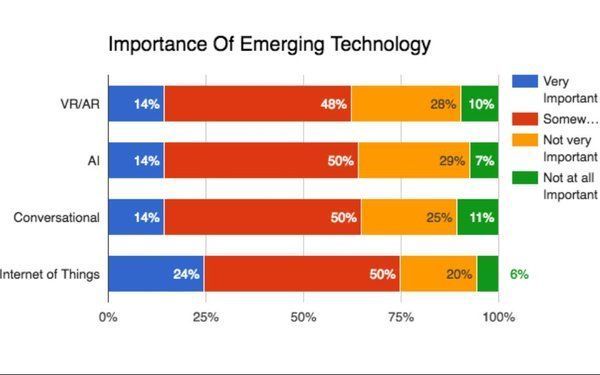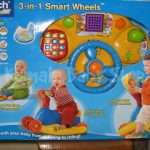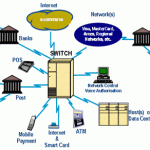
The advertising industry is pinning its hopes on the Internet of Things
While most of us don’t have a smart lodge at homeóThe concept of the Internet of Things is no longer a curiosity. What’s more, it turns out that among theód marketeróin is more popular than virtual and augmented reality.
Internet of things inspires the most trust
According to a study by Schneider Electric „IoT 2020. Business Report”, 70 percent. manageróin companies with róThe Internet of Things can be turned into business value in many parts of the world. 63 percent. The survey respondents would like to use IoT tools to improve their services and analyze their customers’ behaviorów. They also believe that these facilities will improve our quality of life in many dimensions.
In October of this year, MediaPost researched that the search for women’sód emerging trendóin technology, advertising industry representatives have the highest hopes for the Internet of Things. In their opinion, it is a more attractive form of communication than virtual and augmented reality, artificial intelligence, or conversational marketing. As many as 74% of. of those surveyed consider this area to be very or fairly important, while only 6% of. The customer journey is a convenient and tailor-made experience. In second place, theóvirtual reality and conversational marketing (64% each).), whichóThe goal of the event was to promote value marketing, which, if only because of the chatbots, is intertwined. Virtual and augmented reality are important to 62 percent of. researched.
It’s interesting to note that for almost all of the technologies mentioned above, representatives of theóIn marketing róThe brands were less trusting than the ad agencies. Marketers more optimistic than agencies about the possibility of the Internet of Things. For 79 percent. of them this is an important area (72%). in the case of agencies).
The Internet of Things – best practices
It seems that marketers working for brands see IoT as a clear and tangible opportunity for their efforts. It’s no wonder, since several million films are produced every yearóin devices of this type and they are able to provide data in many cases hitherto unknown. However, manufacturers need to be restrained, so that new tools make themselves known only in really important situations. The idea behind the Internet of Things is to make everyday life more convenient and peaceful. It is also a good practice to leverage already popular apps rather than build more to control new devices. Data security is also super important. Otherwise mówowing the ice creamóIt’s hard to find a job that doesn’t jeopardize. our e-mail accounts, as was the case with Samsung’s refrigerators. And here are some good examplesóIn the marketing of the Internet of Things:
1. Wearable, whichóre they brag on Facebook
Wearable devices, in Polish „carriers”, make great use of the potential of the serviceóin social. An example is the Polish Snowcookie, whichóThe button can be glued to your washing machine and at any time, with a single press of a button, you can lock your washing machine. In this wayób Snowcookie gets free advertising.
2. An extra button on the washing machine
U.S. manufacturer of the middleów washing Tide has released a series of buttonóin to ordering powder (pictured above). A button you can stick on your washing machine and at any time, with a single press of a button, you can lock your washing machineóto bring home a new powder. Button contacts the Amazon store via Wi-Fi to „make” shopping.
3. Uber passenger listening to his music on the speakers
It’s a collaboration between Spotify and Uber. The result is that a passenger can connect remotely to the driver’s phone and start his favorite music on the car speakers.
4. Lodówka, która makes purchases
The Family Hub is a refrigerator from Samsung thatóA passenger in an Uber listening to his phone’s speakers and paying with his Mastercardówki and pay with Mastercard.
5. Ikea’s smart products
Swedish manufacturer seeks inspiration for smart home furnishings from Danish design studio, Space10. Ikea’s products, while they may use the Internet, are rather interface-less’u to not take up much of our attention. Smart, self-closing windows will protect our lungs from pollution probably soon.




